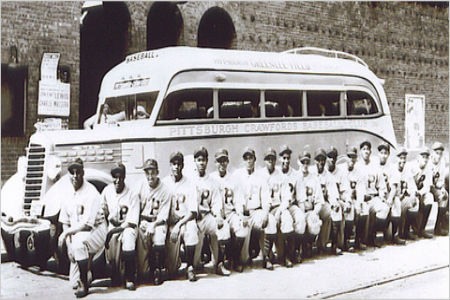Veteran editor and director Sam Pollard has spent his career documenting the black experience in America. His film has earned him numerous accolades and awards including, an Oscar nomination. His most recent works, “Citizen Ashe,” details the life and career of tennis icon Arthur Ashe and “MLK/FBI,” which explores the role of the government’s surveillance of Martin Luther King Jr. Spike Lee, whose films have been edited and produced by Pollard, describes him as a “master filmmaker.”
RadicalMedia (the production company behind “Hamilton” and “Summer of Soul”) has partnered with Magnolia Pictures to produce a new documentary based on the Negro Leagues, with Sam Pollard as director and Questlove serving as one of the executive producers. The film “The League” explores Black baseball as a stage for some of the world’s best athletes, an economic and social pillar of Black communities, and the unintended consequences of MLB integration. In addition, the film celebrates some of the 20th century’s best athletes and entrepreneurs while grappling with America’s arduous march toward equality, including the rarely discussed topic of the dissolution of the Negro League, which led to the downturn of hundreds of Black-owned businesses.
The documentary will take viewers into this story by exploring the legacy and social impacts that the Negro League had on America through recorded interviews with notable Negro League players, including Buck O’Neil and Hall of Fame Inductees Monte Irvin, Willie Mays, and Hank Aaron.
Director Sam Pollard spoke with the Chicago Defender about the upcoming documentary.
Chicago Defender: Tell me about “The League.”
Sam Pollard: The League is a documentary that looks at the impact and the importance of the Negro Leagues. Not only its impact on the field but off the field, especially due to the integration of Major League Baseball with Jackie Robinson going to the Brooklyn Dodgers. We will cover many of the very well-known Negro League players from Rube Foster, Josh Gibson to Satchel Paige. We look at their impact on baseball and how they helped nurture segregated black communities in places like Kansas City, Pittsburgh, and Chicago. So the film isn’t just about baseball. It’s about how these teams and players had an impact off the field.
Chicago Defender: There are so many stories of players in the Negro Leagues. When researching the film, how did you determine what stories to tell?
Sam Pollard: There are many stories. We are telling this story through a gentleman, Bob Motley. He was an African American who became a Negro league umpire. Through his journey as an umpire in the league, he met the greats in the league and shared those stories. We also have an outstanding archival producer tracking down material footage and news articles. In addition, Bob Marley’s son, Brian Murray, interviewed many former Negro League players. These interviews will also be used in the documentary.
Chicago Defender: What is the importance of the Negro Leagues as it pertains not just to the sport but to the black community and culture?

Sam Pollard: I grew up in the 60s and love baseball. The stories of the Negro League and its players is an important story to tell. Our stories are rarely told. This film is an opportunity to shine a light on these phenomenal players. It is also an opportunity to look at the communities they thrived in like, Kansas City, Harlem, New York, the Bronzeville neighborhood in Chicago, and the Hill District in Pittsburgh. It is an opportunity to look at all these communities that were, segregated yet thriving.
We have always been taught that integration was a great thing for African Americans, and on one level, it was. Our communities were self-sufficient because they were forced to be. However, we also lost as a result of integration. When black people could integrate, they left their communities, and those neighborhoods began to struggle economically. The same thing happened in the Negro Leagues. As black ballplayers were recruited and accepted in the Major leagues, the Negro league suffered then faded away by the early 1960s.
Chicago Defender: What do you hope audiences take away from “The League”?
Sam Pollard: I am hopeful audiences understand this vital part of American History. We are at a tipping point in America. The story of the African American experience is something everyone needs to understand. If it were not for black people and all of the things we have done for this country, America would not be the country it is now. Black people invested blood, sweat, and tears in this country.
Chicago Defender: You also want people to help to contribute to telling this story. Can you tell me more about that?
Sam Pollard: Absolutely. We are looking for any archival material, news stories, or footage that people may have about the Negro League. So we are asking the public to send us what they have.
If you have any archival materials on the Negro League or its players, send them to theleaguearchival@radicalmedia.com.